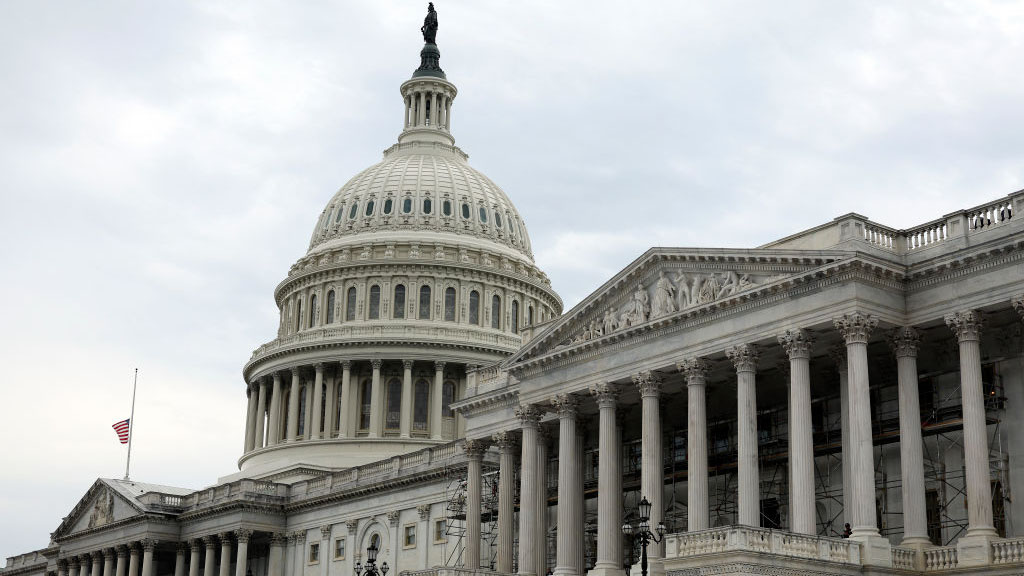WICHITA, Kan. — George Tiller's slaying has accomplished what anti-abortion activists had tried to do for decades: The doors to his Kansas clinic will shut forever.
The announcement Tuesday from Tiller's family was a tainted victory for the nation's anti-abortion movement. For years, it made Tiller the focus of protests, legislation and legal attacks. His death reignited a public debate over some abortion opponents' tactics and left many wondering how it will transform the abortion battleground.
Now that Tiller and his clinic are gone, the epicenter of the anti-abortion movement is less clear. Kansas has long been a lightning rod in the hot-button social issue — and in 2002, the leader of the anti-abortion group Operation Rescue even moved his organization to the city to wage an aggressive campaign. With the clinic's doors closed, the movement loses one of its key protest symbols.
"Part of what is a tragedy about this is that violence has achieved its objective," said Nancy Northup, president of Center for Reproductive Rights. "There is a concerted, ongoing effort at harassment and restriction with an aim to make doctors leave the field."
Operations at Women's Health Care Services Inc. were suspended following Tiller's death last month. In a statement released by his attorneys, Tiller's family said relatives had chosen to honor him with charitable activities instead of reopening the clinic.
"We are proud of the service and courage shown by our husband and father and know that women's health care needs have been met because of his dedication and service," the family said in the statement. They did not elaborate on their reasoning to close.
Tiller, who had said women with access to prenatal testing needed options in case those tests uncovered severe fetal abnormalities, was shot to death May 31 while serving as an usher at his Lutheran church. Prosecutors have charged abortion opponent Scott Roeder, 51, with first-degree murder and aggravated assault in Tiller's death.
U.S. & World
For now, Operation Rescue has no plans to leave Wichita and the group's leader, Troy Newman, called the family's decision to close the clinic "bittersweet." He said his group wants to close abortion clinics but, "I want to see them close through peaceful, legal nonviolent means."
Tiller's clinic had long served as a rally point for abortion opponents. Most protests were peaceful, but his clinic was bombed in 1986 and he was shot in both arms in 1993. In 1991, a 45-day "Summer of Mercy" campaign organized by Operation Rescue drew thousands of abortion opponents to Wichita and there were more than 2,700 arrests.
Tiller's clinic was one of a handful of clinics across the country that perform third-term abortions. Kansas state law allows abortions on viable fetuses after the 21st week only if carrying the pregnancy to term would endanger the mother's life or cause a "substantial and irreversible impairment" of a major bodily function. Courts have interpreted a "major bodily function" to include mental health.
Colorado doctor Warren Hern, Tiller's longtime friend who also performs late-term abortions, called the closing an "outrage." He said he knows that for the rest of his life, he will be a target of the anti-abortion movement.
"How much can you resist this kind of violence?" he said. "What doctor, what reasonable doctor would work there? Where does it stop?"
At least one doctor, LeRoy Carhart, had expressed an interest in reopening Tiller's clinic. Following the family's decision to shut it down, the Nebraska doctor said he wouldn't abandon his effort to make sure third-term abortions are available but did not elaborate on his plans.
"I completely understand and sympathize with this decision," he said in a statement. "I am currently exploring every option to be able to continue to make second and early medically indicated third trimester abortions available."
Reaction to the clinic's closing ranged from sympathy from abortion rights supporters to relief from some anti-abortion groups. Planned Parenthood Federation of America saod the decision to close was difficult for the Tiller family, while Randall Terry, who founded Operation Rescue before a falling-out with the organization, said "good riddance" when he heard about the closing.
"If his replacement was going to continue to kill late-term children, the protests would continue, the investigations would continue, the indictments would continue," said Terry, who stopped using the Operation Rescue name following numerous lawsuits in 1990. He said history would remember Tiller's clinic as it remembers Auschwitz and other Nazi concentration camps.
Others were more subdued. Mary Kay Culp, executive director of Kansans for Life, said it was "really tragic" to have violence close the clinic when the state's medical board was pursuing a complaint that could have cost Tiller his license.
The complaint before the State Board of Healing Arts, which licenses and regulates doctors in Kansas, alleged Tiller violated a state law that required him to obtain a second opinion from an independent physician, and it accused him of engaging in unprofessional or dishonorable conduct. A board spokeswoman has said since the shooting the case probably will be closed.
Said Newman in an e-mail: "Operation Rescue was just two months away from getting Tiller's medical license revoked, and that would have accomplished the same goal."



